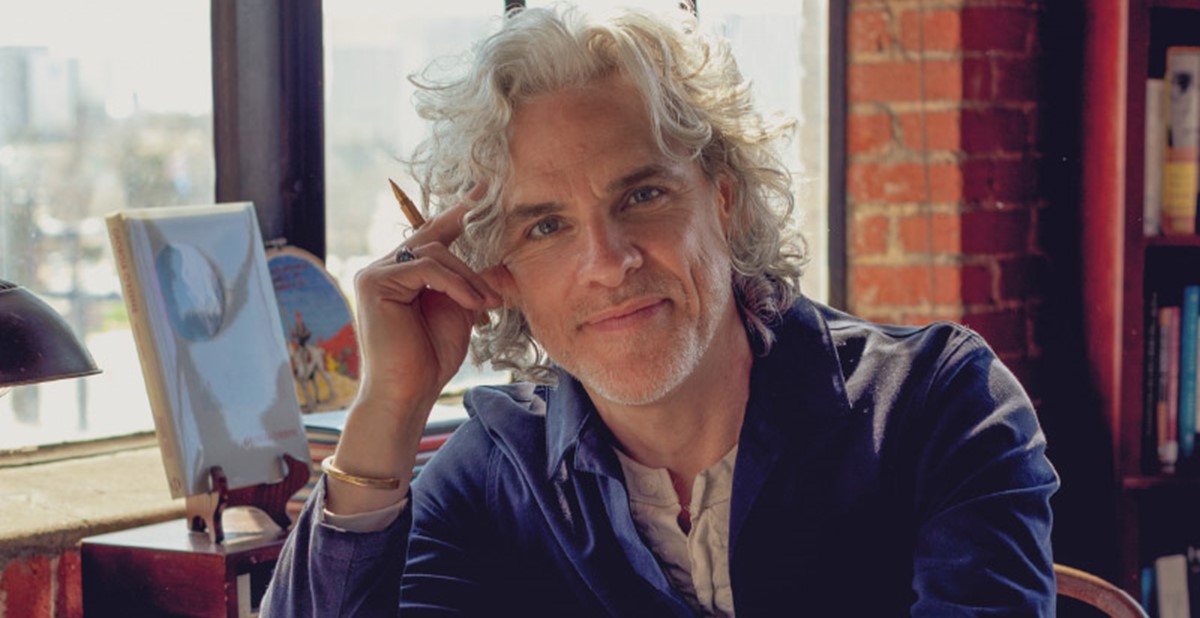Close Up: Work Of Art

As an industry leader, Bobby Lehew has won multiple PPAI Pyramid Awards.
Before he was a writer, Bobby Lehew was a “promo punk.”
“I cut my teeth in the industry as a kid fresh out of high school, packing boxes for a fulfillment program,” he says. “I helped grow the company to $10 million in revenue—twice—the second time after a recession, and eventually became the CEO.” He left Robyn in 2016 to join commonsku as its chief content officer.
As an industry leader, he has won multiple PPAI Pyramid Awards and in his work with Robyn, was named three times to Inc. magazine’s fastest‐growing private companies in the U.S. He’s regularly been named to the #Online18 list of industry social media influencers created by PPAI President & CEO Dale Denham, MAS+.
Joining the commonsku team was an important risk for Lehew. “It wasn’t that joining commonsku was a risk, but the risk was giving myself permission to pursue something that didn’t square with a typical career plotline,” Lehew says. “The biggest risk was taking a gamble on my own skills; a risk we all take each time we advance the game.”
Lehew’s passion for content creation came later in his career. He says, “The writing emerged as I began to understand it as a creative tool in my toolbelt. Everything we do is creative communication, whether through the written word or through a merch campaign: it’s all about connecting.
“My career lines between creativity, merch, and content converged when I stopped treating art and business as two separate disciplines; they come from the same place.”
While he’s evolved as a storyteller, Lehew says he still has much to learn. “[I’ve evolved] in so many ways, and one way is that I don’t need to be a part of the story,” he says. “Through our podcast, the skucast, or our events, I’ve fallen in love with the craft of sharing other people’s journeys. My perspective has changed, too. I once thought the only story that mattered was the customer’s story. I was wrong.
“For each project in our business, you have multiple perspectives and therefore, multiple viewpoints: the client’s perspective, the distributor’s perspective, the supplier’s perspective, the recipient’s perspective, and the community/culture perspective. They each have their own version of the same story to tell. When we unpack these perspectives, we can position the right story to share in any selling situation.”
How important is storytelling for our industry? Lehew says, “It’s potent enough to single-handedly de-commodify our industry—if we’ll use it.”
Businesses should focus on content creation, says Lehew. “Because it’s so damn rewarding. The simple truth is once you begin the hard work of building content, you’ll attract more talent, earn more clients and gain more respect as a brand and self-respect as an organization. Most people underestimate the power of their story. There’s an undeniable attraction to content done well.”
In this last year, one lesson stands out to Lehew. He says, “The extraordinary is disguised within the ordinary. Cormac McCarthy said, ‘Everything’s important,’ and he said so without a hint of irony, which I find just beautiful.”
PPB spoke with Lehew to learn more about how he communicates creatively.
My advice to someone hoping to build a distinct brand voice is… to know thyself. Arthur Schopenhauer said: “We forfeit ¾ of ourselves in order to be like other people.” Most brands, at least initially, are a reflection of the founder’s personality (Apple vs. Microsoft, for example) and the desire of their aspirational self.
We don’t talk about it that simply, but it’s that simple. Know thyself and know thy clients. Don’t start by comparing yourself to others, that’s the wrong mirror. When you compare yourself to others you underestimate yourself and by doing so, overestimate the competition. Look within. Everything that makes you unique will come from there—from yourself, from the special work you do for clients, and from your aspiration.
I improve my skills by… doing a lot of it very poorly—and publicly—until you learn to do it well and on a regular deadline if you can. Whatever “it” is (selling, designing, writing, etc). In 2007, when Michael Joseph Winkelmann, aka Beeple, made a commitment to produce and publish a digital drawing every day, little did he know he would eventually produce over 5,000 drawings, combine them into one magnum opus, and then sell the whole thing for $69 million, the first NFT sold by Christie’s auction house. A little adds up to a lot, like pennies in a jar. In Beeple’s case: a ton of pennies in a jar.
Lately, I have been inspired by… the music of Anton Baibakov, a Ukrainian composer from Kyiv; the documentary Unstoppable: Sean Scully & the Art of Everything; Where the Heart Beats, a book about John Cage. The crazy-beautiful blue hues in the Apple TV series Severance by cinematographer Jessica Lee Gagné. And a weird little book by Jun’ichirō Tanizaki.
Kristina Valdez is an associate editor at PPAI.

